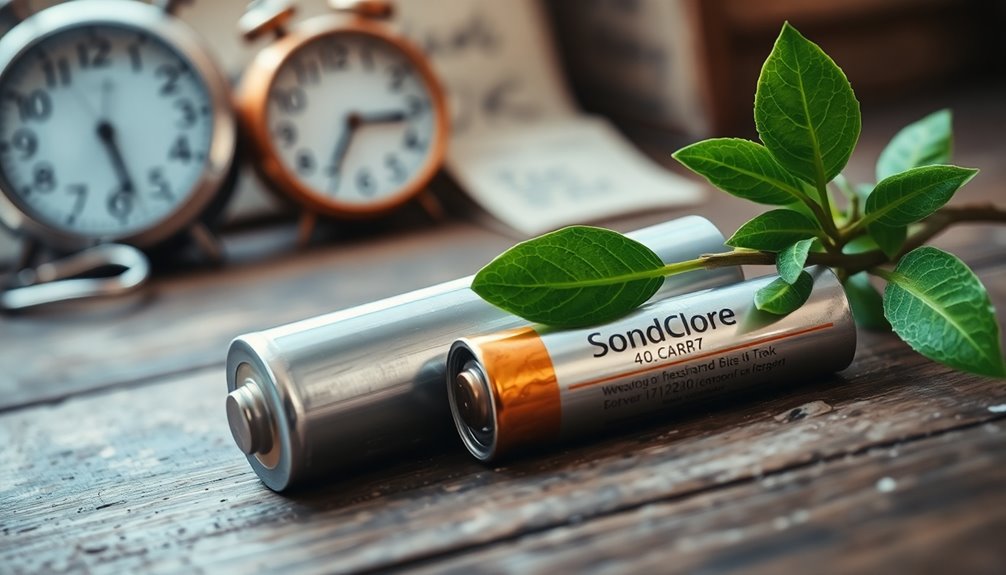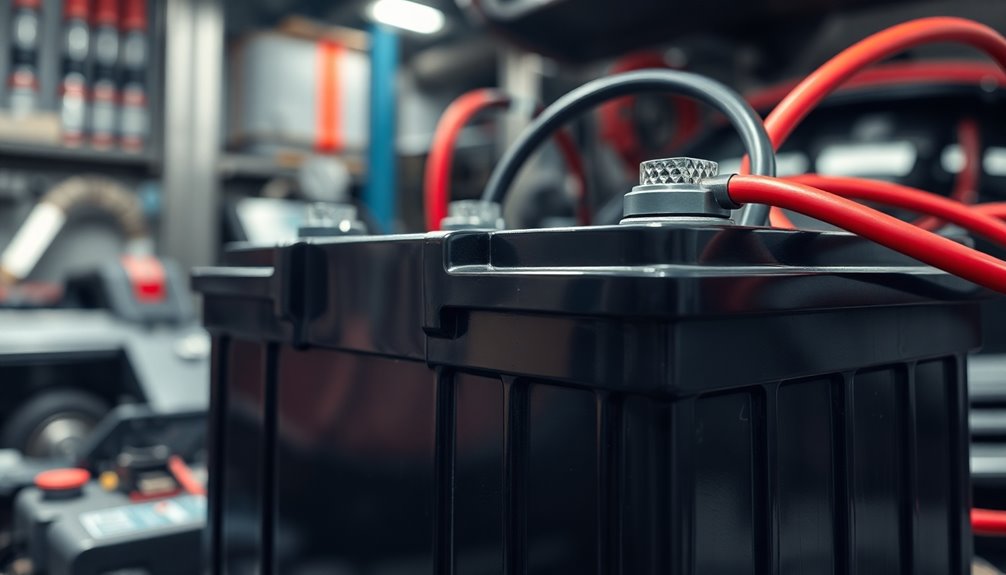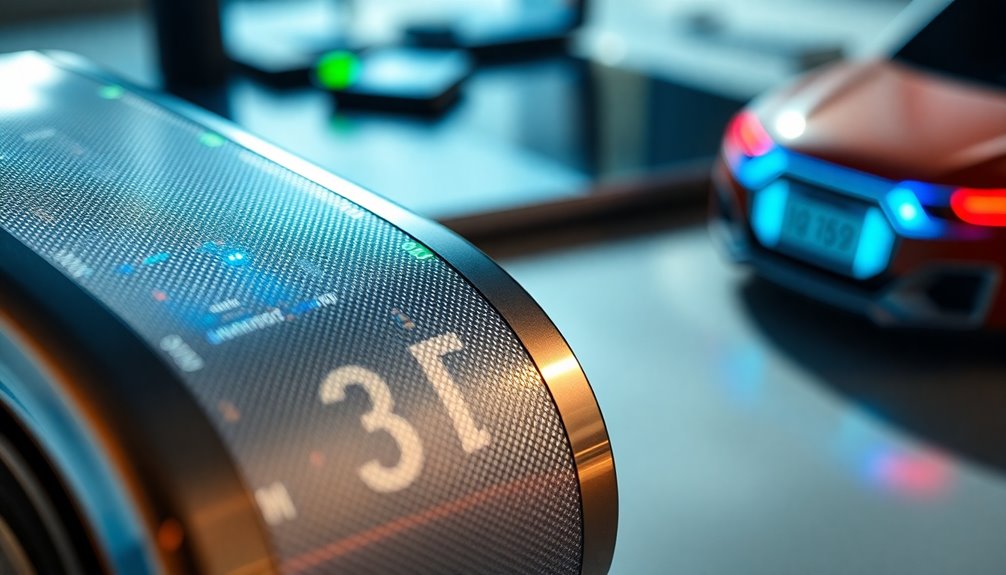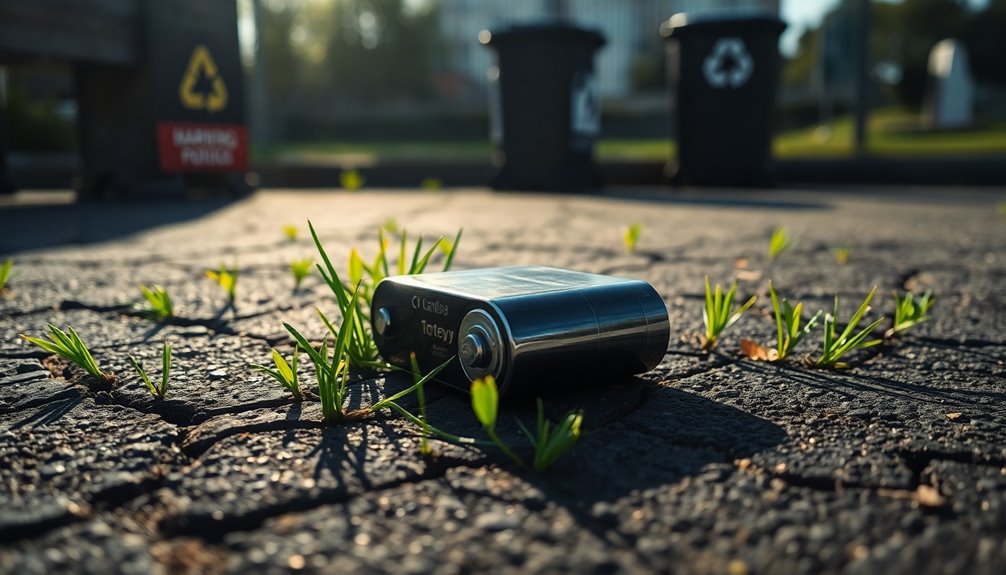Key fob batteries usually last between 3 to 4 years, but with the right care, some can stretch to 5 years. The lifespan largely depends on the battery type, usage patterns, and environmental conditions. For instance, CR2032 batteries can last anywhere from 2 to 10 years based on how often you use your key fob. If you notice reduced signal range or inconsistent responses, it might be time to replace the battery. Staying aware of these factors can help you maximize your battery life. Stick around to uncover tips on maintenance and when to replace your key fob battery!
Key Takeaways
- Key fob batteries typically last between 3 to 4 years, with some lasting up to 5 years depending on usage and care.
- Common battery types include CR2032, CR2025, and 27A, with CR2032 being prevalent in Honda models.
- Battery lifespan can vary widely; for example, CR2032 batteries can last from 2 to 10 years based on usage patterns.
- Regular maintenance, such as cleaning contacts and checking battery status, can help prolong battery life.
- Signs of low battery include reduced signal range and delayed responses; timely replacement can prevent unexpected failures.
Key Fob Battery Lifespan

When you rely on your key fob for daily access to your vehicle, understanding its battery lifespan becomes essential.
Typically, key fob batteries last between 3 to 4 years, but some users extend this up to 5 years with proper care. The type of battery matters too; for instance, CR2032 and 27A batteries can show different lifespans based on brand quality.
You should be alert for signs that indicate it's time to replace the battery, like reduced signal range or delayed button responses.
Regularly checking your key fob batteries helps you avoid unexpected failures. By staying proactive, you'll guarantee your key fob remains functional and reliable for your daily needs.
Factors Affecting Battery Duration

Several factors can influence how long your key fob battery lasts, so being aware of them can help you maximize its lifespan. One major factor is your usage patterns; if you frequently use advanced features like keyless entry or remote start, your battery will drain faster. In contrast, less frequent use allows the battery to last longer.
Environmental factors also play a critical role; extreme temperatures can negatively impact battery performance and longevity. Additionally, the type of battery in your fob matters—higher-quality batteries like CR2032 generally offer better performance.
Regular maintenance, such as cleaning the contacts and ensuring a good signal range, can further help mitigate battery drain and extend your key fob's overall lifespan.
Signs of Low Battery Life
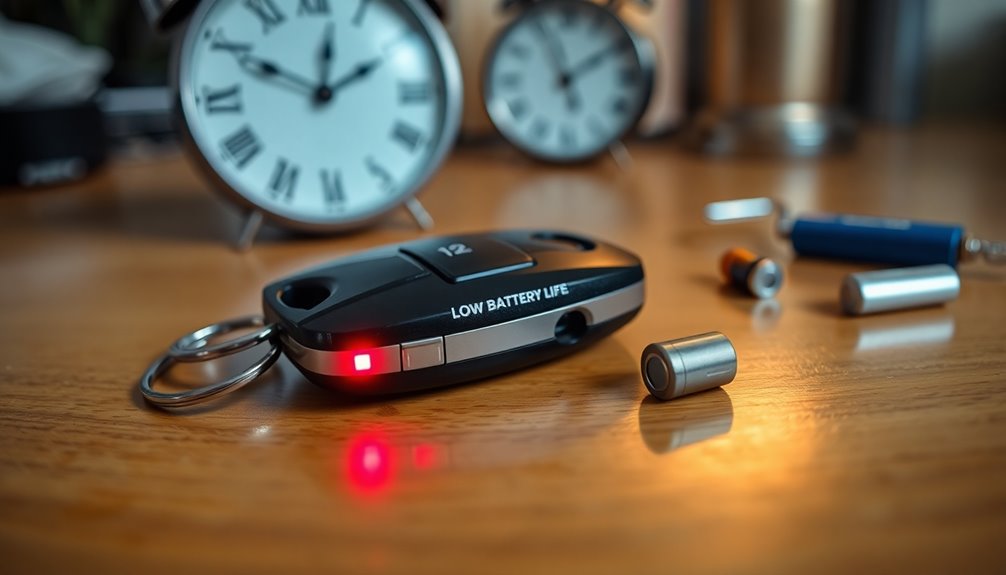
Recognizing the signs of low battery life in your key fob can save you from getting locked out of your vehicle.
If you notice a shortened signal range, where the fob only works within a few feet, that's a clear indicator. You might also find yourself pressing the release or lock button multiple times before your vehicle responds, signaling it's time to replace the battery.
Delayed responses after pressing the buttons are another sign of battery drain. Additionally, if your key fob works inconsistently or only intermittently, it's time to take note.
Regularly checking if your fob can lock or release from 8-10 spaces away can help you determine if your battery is weakening. Don't wait until it's too late!
Battery Types for Key Fobs
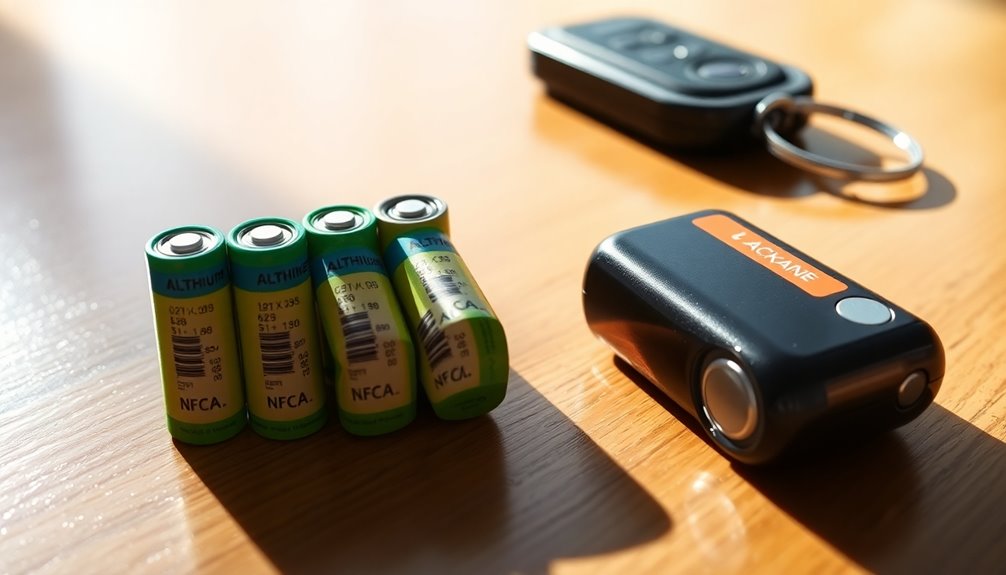
Understanding the types of batteries used in key fobs is essential for ensuring your device functions properly. Common options include the 27A and the CR2032, with the CR2032 battery being particularly popular in many Honda models.
The lifespan of CR2032 batteries can vary widely, with some users experiencing battery drain within just two years, while others report up to ten years of reliable use, depending on how often they use their key fob.
If your key fob features advanced functionalities like keyless entry or remote start, you'll likely need a high-quality battery to meet its energy demands.
Always opt for reputable brands like Duracell or Panasonic, and check the manufacturing date to avoid purchasing older stock that may underperform. Additionally, understanding the importance of using trusted custodians can help ensure that you select the right battery for your key fob's needs.
Maintenance Tips for Longevity
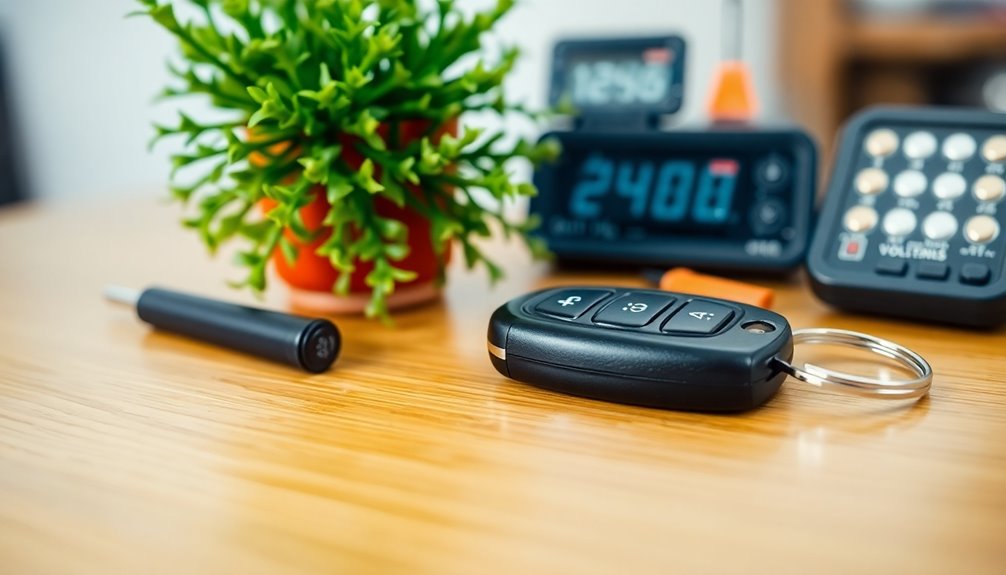
To guarantee your key fob lasts as long as possible, it's crucial to incorporate some simple maintenance tips into your routine.
Here are three effective strategies:
- Check Battery Status: Regularly check the battery status of your key fob every few months to avoid unexpected failures.
- Keep Spare Batteries: Always have spare batteries on hand. Replace them proactively before the expiry date to guarantee you're never stranded without access to your vehicle.
- Clean and Store Properly: Clean the key fob's contacts with rubbing alcohol to eliminate dirt, and store it away from extreme temperatures and moisture.
User Experiences and Feedback
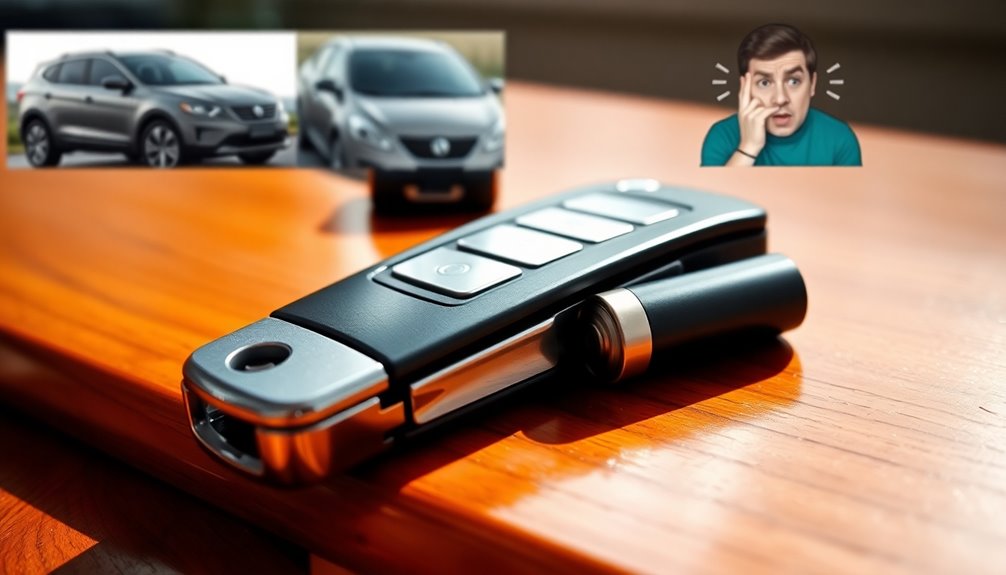
How long can you really expect your key fob battery to last? User experiences vary widely, with many reporting an average battery life of 2 to 5 years.
Factors like temperature and humidity can greatly impact this lifespan. If you frequently use your key fob, you might find yourself replacing the battery every 1 to 3 years.
However, some users are surprised to discover that certain brands, especially those using CR2032 cells, can last over a decade.
Regular maintenance and checking your battery's health often leads to fewer unexpected failures.
Ultimately, your key fob's battery life depends on usage patterns and environmental conditions, so staying informed can help you manage expectations effectively.
Importance of Proactive Replacement

User experiences highlight the variability in key fob battery lifespan, but taking a proactive approach to battery replacement can make a significant difference. Instead of waiting for your key fob to fail, consider these proactive steps:
- Replace every 2-3 years: This keeps your key fob functioning reliably, even if the battery could last 3-4 years.
- Regularly check battery health: Look for signs of battery drain to avoid unexpected failures.
- Keep a spare battery handy: Even unused batteries can lose charge over time, so guarantee you have a reliable backup.
Related Automotive Updates

As you keep an eye on key fob battery duration, it's also worth noting some exciting updates in the automotive world.
From recent model launches to advancements in battery technology, manufacturers are constantly evolving their offerings.
Plus, warranty updates are making it easier for you to feel confident in your vehicle's reliability.
Recent Model Launches
While the automotive landscape continues to evolve, recent model launches highlight the industry's commitment to innovation and customer satisfaction. As you explore new options, consider these key developments:
- Mahindra's significant EV manufacturing plant showcases its dedication to electric vehicles.
- Toyota's Innova Hycross now resolves battery drain issues under warranty, guaranteeing reliable performance.
- Citroen's impressive 3-year/1 lakh km warranty positions them as a dependable choice.
With more brands like Hyundai and Audi announcing upcoming models, it's clear the market's changing rapidly. Additionally, understanding regulatory compliance is crucial for ensuring that you stay informed about automotive advancements and related policies.
If you've ever had to change the battery in your key fob, you know how essential these advancements are for enhancing your driving experience.
Keeping up with these updates guarantees you make informed choices in a dynamic automotive market.
Battery Technology Advancements
With advancements in battery technology, key fobs are becoming more reliable and user-friendly than ever.
Newer models often use lithium-ion batteries, greatly improving longevity over traditional alkaline options. Thanks to energy-efficient components, some key fobs can last up to 5 years under ideal usage conditions.
Recent developments in radio frequency technology enable key fobs to communicate with your vehicle from greater distances, which can affect battery consumption rates.
Enhanced designs, like dual-cell configurations, allow for better energy management, contributing to longer-lasting performance compared to older single-cell designs.
Plus, manufacturers now include features that alert you when battery levels are low, helping you avoid unexpected failures and enhancing your overall user experience. This mirrors trends in energy-efficient technology that seek to optimize performance across various applications.
Manufacturer Warranty Updates
Automakers are increasingly recognizing the importance of robust warranty offerings to enhance customer confidence and satisfaction. This trend is evident across the industry, as manufacturers roll out impressive warranty updates.
For instance:
- Mahindra now offers a 3-year or 1 lakh kilometers warranty on all its models.
- Toyota provides coverage for battery drain issues in the Innova Hycross.
- Citroen has implemented a similar 3-year/1 lakh kilometers warranty across its range.
These updates not only strengthen trust but also guarantee that if you face issues with car keys or one key fob, you're covered.
With warranties lasting around three years, you can drive with peace of mind, knowing your investment is well-protected. Additionally, understanding the intricacies of Louisiana alimony laws can help you navigate financial responsibilities during significant life changes.
Frequently Asked Questions
What Is the Lifespan of a Key Fob Battery?
The lifespan of a key fob battery typically ranges from 3 to 4 years, but it can vary based on how often you use it.
If you're using your key fob frequently, expect a shorter lifespan.
Factors like temperature and humidity also impact battery health.
For peak performance, check your battery regularly and consider replacing it every 2-3 years to avoid unexpected issues.
Staying proactive guarantees your key fob works when you need it.
Why Is My Key Fob Battery Draining so Quickly?
Your key fob battery might be draining faster than a cheetah on the hunt!
This often happens due to constant signal transmission, especially if you frequently use remote features.
Extreme temperatures can also sap the battery's life, while keeping the fob too close to your vehicle during storage might trigger unintended signals.
Plus, dirty contacts can lead to poor communication, causing the battery to work overtime.
It's time to check these factors to save your battery!
How Do I Know if My Key Fob Battery Is Dying?
You'll know your key fob battery is dying if you notice a shortened signal range, like only working from a few feet away.
If you experience inconsistent responses when locking or accessing your car, that's another red flag.
A sudden inability to start your vehicle or needing to press the button multiple times also indicates it's time for a replacement.
Regularly check your fob's performance to avoid unexpected issues.
What Happens if the Key Fob Battery Is Low?
When your key fob battery's low, it's like trying to whisper secrets in a noisy room.
You'll find yourself standing just 8-10 feet away, pressing buttons repeatedly, hoping for that satisfying click. The signal struggles, leaving you waiting longer than usual.
A "replace battery" message might flash, and if things get dire, your car mightn't respond at all, locking you out.
It's time to change that battery before you're stuck.
Conclusion
In summary, understanding your key fob's battery lifespan can save you from unexpected lockouts. Did you know that the average key fob battery lasts about 3 to 4 years? By keeping an eye on signs of low battery life and replacing it proactively, you can guarantee seamless access to your vehicle. Remember, a little maintenance goes a long way in extending your key fob's functionality and keeping your driving experience hassle-free!


